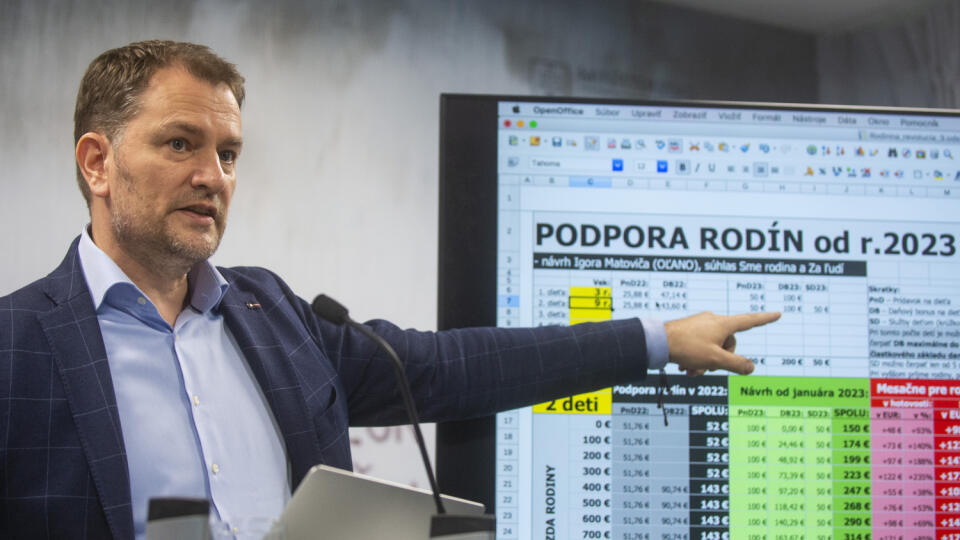President Zuzana Čaputová has vetoed the anti-inflation package and called for adjustments to it. The Ministry of Finance designed the package, and the Parliament approved it at the end of May. The President says she does not object to the passages concerning immediate help. However, she objects to the statutes that would come into effect in 2023, and which were approved in, according to the President, an unsubstantiated streamlined legislative process.
On Monday, before she decided to veto the package, the President invited representatives of social partners, local authorities, and pro-family organisations to discuss the package. Representatives of trade unions were against the streamlined process and said the proposed package doesn’t help those who need it the most. Local authorities warned the President that the package may cause a multi-million-euro hole in their budgets.
The package includes 60 euros monthly for children’s leisure activities as well as an increased tax bonus and child allowance. Pro-family organisations urged the President to sign it, saying it will benefit poor families.
Minister of Finance Igor Matovič said he was not surprised by the President’s decision as he expected it. He called her a “progressive liberal” as opposed to his “pro-family conservativism”, finally saying “families will eventually win”.
Teachers’ salaries caught in political crossfire
The Minister of Finance has been criticised from all sides following a decision to include an increase in teachers’ salaries in the same legislative package as an extra tax rate on Russian oil and alcohol.
Minister of Education Branislav Gröhling is strongly opposed to this move and claims the state has enough money from the increased tax collection caused by inflation. The Education Minister said he can’t increase teachers’ salaries by the promised 10% unless he has the expenses covered by the Ministry of Finance. The increase would cost the state 180m euros.
The Freedom and Solidarity Party (SaS) said Matovič is holding teachers hostages by linking them to tax increases, which the liberal party has repeatedly vetoed and will do so again. On Tuesday, the SaS party led by the Minister of Economy Richard Sulík declared they would no longer participate in coalition meetings, at least until the situation calms down.
On Wednesday, Matovič presented his promised bill proposal at government coalition meeting. The proposal was vetoed by SaS, including Gröhling. He said that he will continue a dialogue with the Ministry of Finance to reach an agreement about raising teachers’ salaries.
Economy snapshot
The gross domestic product (GDP) increased by 3.1% year on year in the first quarter of 2022, reaching 23.8bn euros. It also constituted an increase of 0.4% from the previous quarter. According to the analyst from UniCredit Bank Czech Republic and Slovakia, Ľubomír Koršňák, it was mainly domestic consumption that drove the economy; foreign demand didn’t contribute to the growth.
The Organisation for Economic Co-operation and Development (OECD) expects Slovakia’s GDP to grow by 2.3% this year, and 3.4% in 2023, considering high inflation and the war in Ukraine are still having an impact on the economy.
The quarterly rate of employment in Slovakia has risen for the third time in a row – the previous quarter’s year on year increase was by 2.8%, pushing the number of working people to approximately 2,572,000.
Despite high inflation and material crisis paralysing production and export, the rate of unemployment is decreasing. In April, only 6.54% of people able to work were unemployed – that’s the fewest since the pandemic started.
The average monthly wage has fallen for the first time in two years. Although the average earnings in this year’s first quarter increased by 7.8% compared to the previous year, reaching 1,212 euros, after taking inflation into account, they actually dropped by 1.4%. That means people can buy fewer goods and services with their pay than they could last year.
Slovakia is falling into debt faster than most European Union countries. The only countries with a worse situation than here are France, Malta, Italy, and Spain. And although Slovakia’s debt is still below the EU average, the speed of generating it is troubling.
Thank you for reading.
See you next week.






